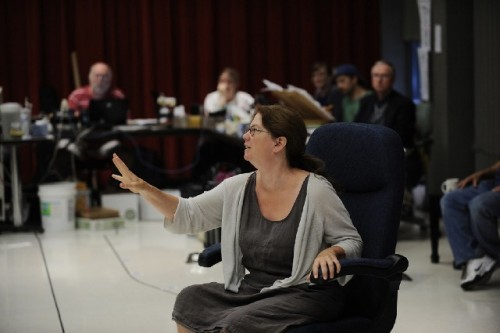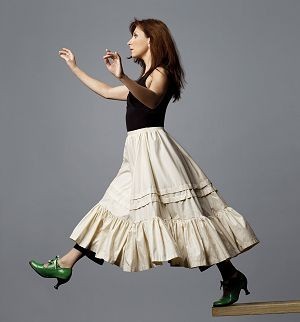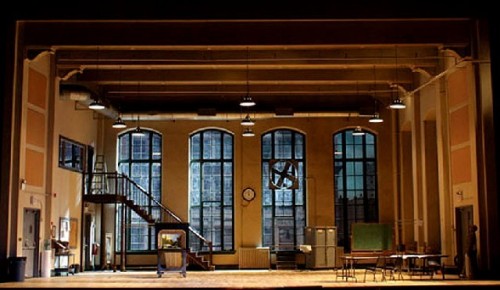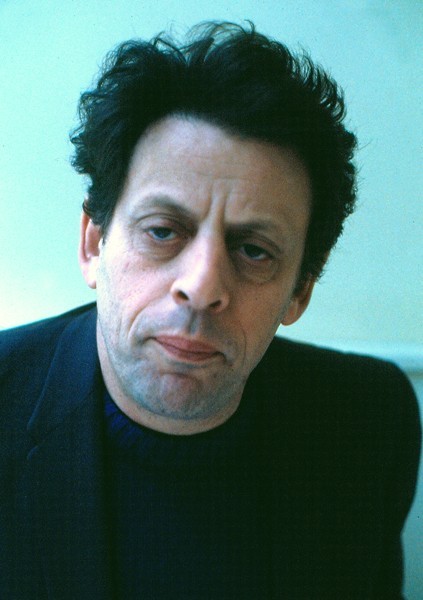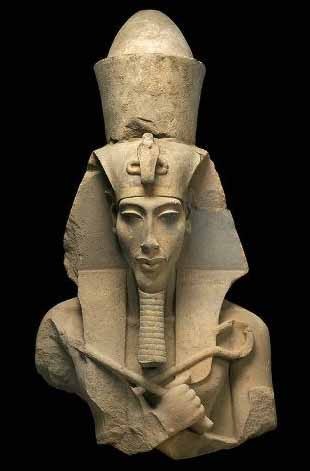Mary Zimmerman on Opera
Has Directed Three Productions for the Met
By: Mary Zimmerman and Charles Giuliano - Oct 06, 2011
While Mary Zimmerman, a MacArthur Fellow and Tony winner was in rehearsal for Candide at the Huntington Theatre we spoke at length about the Leonard Bernstein musical. In this second insallment of the dialogue Zimmerman discussed her work with the Met and composer Philip Glass. She spoke frankly about the resistance to creating new work with a traditional medium. She surprised us by stating that she thinks that Live in HD is "The greatest idea in the history of civilization." In creating new productions for the Met she is aware of both how it will look on stage as well as on the screens of hundreds of theatres all over the world. It enormously widens the audience for opera which helps to break down the barriers of isolation and elitism.
Zimmerman has created three productions for the Met and is in negotiation for more work. She is also talking with Philip Glass about collaborating on their second opera. While she did not suggest or confirm this it is possible that her next Met production may be that new opera with Glass.
There will be another installment of this dialogue.
Charles Giuliano I was among the relatively few who wrote a positive review of your production of La Sonnambula (Vicenzo Bellini) at the Met. I can send it to you if you are interested.
Mary Zimmerman I won’t read it. I haven’t read a review in twenty years probably. I know what they are. People tell me like you just did. But I don’t read that language.
CG If you didn’t read the reviews for La Sonnambula it is likely you caught their drift.
MZ Of course we can talk about it. My response is that I love my show. I did right by it and it sold every ticket. We had a great time. There are always going to be people who don’t like things. Your job when you are hired as director is to do your best. To do what you want to do and what best serves animating, making real and beautiful the text that you’re given. There are always going to be people, especially in the opera world, where that’s not going to be loved. It seems that everything in the art world goes from outrage to acceptance, to outrage, to acceptance. I don’t know if you remember but when I did Lucia and everyone moved a little bit during the sex bit that was very disparaged and now it is just part of the opera. In fact imitated. That’s how it goes.
I think the problem in opera is that unlike in the theatre there are recordings. People attach extremely strongly to those recordings. Or to a production that they saw many many years ago. They wed that which is in their minds to the music. As though straight from heaven that image is connected to that music. Whereas, in theatre, every production we are going to see, even of Chekhov, even of Shakespeare, is going to be different. They don’t stay in rep the way they do in opera. They’re not reified in recordings. People who attach to recordings, and this is not a comment against recordings, but there’s a virtual film in your head. It’s divine because it’s ineffable, immutable. It’s your own and it’s personal. It remains absolute for you. And any embodiment you see that does not match that embodiment that is inscribed in your brain, through your listening to recordings, appears gross and distracting. Because it is distracting you from this pure experience that is internal and your own. And you have to wed a new image to the music. Some people are flexible and can do that and some people can not. Nor will they ever.
CG At the end of La Sonnambula when the village people come out in traditional Swiss costumes that felt like a riff or a spoof.
MZ No, if it’s a spoof on anything it’s a spoof on the theatre itself. The pressure of the theatre to perform. To me actually it’s a celebration. It’s a marriage of the show that the performers have been rehearsing, in our little fiction of the staging, and the real opera La Sonnambula. There’s the rehearsal for the performance, the performance, our staging and a more normal staging with Swiss costumes with a celebration and garlands. It’s all marriage. Part of the ecstasy of union. That last song is about union and coming together. Her dream life and real life coming together. When the performers bow at the end they are bowing as these fictional characters in La Sonnambula and as themselves.
CG Do you have any other productions in the works with the Met?
MZ I do but they’re not announced. I have revivals as well.
CG So you have an ongoing relationship with the Met.
MZ I think so. I desperately needed a break. I did three in four years. I needed to get away from it see inside myself if I wanted to continue with it or not. It’s not what I spent the first 23 years doing. And I just wasn’t sure if I wanted to continue. I love the thing that opera is on stage. Rehearsing it and being in the music. And being in the story. But I don’t love much that goes on around it.
CG What does that mean?
MZ The deeply hierarchical nature of the structure. And the dressing up and all of that. I’m not interested in that.
CG I don’t understand where you’re coming from. Can you clarify this for us?
MZ I don’t like dressing up. I don’t like displays of wealth. It’s such an expensive ticket. I feel sad about that. I feel sad about its self important air. The comparative quality. This person’s performance compared to that person’s performance. Rather than a more open acceptance of variations of how things can be. It’s a very traditional world.
CG Do you think Live in HD is changing that?
MZ I think Live in HD is the greatest idea in the history of civilization. It will only increase interest in opera. It will increase attendance. It will increase this feeling I have about opera that it’s inaccessible to most of the world. In some senses it has deliberately made itself inaccessible to most of the world. I think it’s fantastic.
(Not only is opera inaccessible to the public it is also somewhat inaccessible to the media. It is exceedingly difficult to get press seats to the Met even for less that top tier media. Even requesting Live in HD tickets from venues is difficult because of restrictions in their contracts with the Met. This is even true when we post previews and press releases from the Met. So her point is well taken. What is gained by restricting media access when the perceived goal is to increase audience exposure to opera?)
CG Opera is mother’s milk to Italians as dance is to Russians.
MZ Like baseball is to America.
CG The lack of wider interest in opera seems more of an American issue than a global one.
MZ Opera cultivates within itself a gigantic system of knowledge. If you’re not a part of it you’re an idiot. Or you’re at fault. Or you’re flawed. So if people come to it feeling shut out in that way of course they’re going to respond in an insulting manner. To go back to what you said (about negative responses to La Sonnambula) about the people who booed me. I have a huge fondness for the fanatics. They’re the ones, if there is an apocalypse tomorrow, will be crawling through Lincoln Center Plaza with their tickets to La Boheme clutched in their mouths. They’re the ones who keep it going. I always find that passion kind of beautiful. Especially for something artistic. I’m just not always going to be on the right side of it.
CG In addition to creating productions of traditional operas you have also worked with Philip Glass to create a new opera. I had an opportunity to interview him and I found him wonderfully warm and accessible.
MZ Of course. I adore Philip. Years and years ago I was invited to do his Akhnaten (Boston Lyric Opera, 2000). Then Chicago Opera said they would like to come in on that. My reason for taking on that opera, in addition to my lifelong interest in Philip Glass, started when I was a child and saw Koyaanisqatsi (1983 film with Glass soundtrack). It entranced me. Not even knowing that it was by Philip Glass. I went to that film about 12 times in Lincoln, Nebraska. I didn’t know Glass from a hole in the wall at the time but that music entranced me. There are people for whom that music functions and people for whom it does not. It goes inside me and speaks to something. I don’t know what it is. I can’t explain it structurally. But it takes me someplace with its infinite subtle shifts. I don’t have any vocabulary to describe it any more than why I fall in love with a person. Or in love with a book. It just happens.
When I was invited I thought I will do this because I will get to meet Philip Glass and I will trick him into liking me and we will do an opera together. And all of that happened. I adore that man. I take him as a pattern of equanimity in dealing with adversity as there is hardly a person in the music world who went through more controversy. For him it’s just water off a rock. He just moves on. He’s such a mensch and I absolutely adore him. In fact we’re talking right now about something else. I loved working on the opera with him and would do another one at the drop of a hat.
CG Can you expand on “tricking him into liking me?”
MZ That’s just a reflection on my own sense of low self worth. He was doing a talk. This was in advance of doing the opera. It was at the Art Institute (of Chicago). We were back stage and he said “You’re just normal like me.” There is another connection. He talks a lot about studying with Nadia Boulanger. My uncle, who lives in Boston, also studied with Nadia Boulanger. I love hearing those stories and felt close to him because of that.
CG Let’s talk about Ankhenaten. Early on I was an intern in the Department of Egyptian Art of the Museum of Fine Arts for two and a half years. I moved on but have had an intense interest in Ancient Egypt. As the founder of monotheism it seems to me that Ankhenaten is one of the primary religious leaders in Western Culture on a level with Moses, Jesus, Mohammed and Luther. And yet he is little known and misunderstood. He banished the old gods and replaced them with a single one Aten the light of the sun god Amun. He created a new capital at Amarna and its decoration represents one of the great accomplishments in the art of Western Civilization. It is likely that he was murdered and after a murky interregnum, during which his wife, Nefertiti, may have briefly ruled, he was followed by his son, the boy king Tutankhamun. Egypt returned to the worship of polytheism and the city was destroyed. They attempted to remove all traces of his rule and the embrace of a single god.
MZ That was Philip’s interest as well.
CG While working on the opera what did you learn and appreciate about Ankhenaten?
MZ I love the counter tenor. Philip wrote him as a way of shutting him off from other people.
I had a magnificent adventure. I went to Egypt. I went to Tel el Amarna. It was just a couple of years after the Luxor Massacre. (The Luxor Massacre refers to the killing of 62 people, mostly tourists, that took place on 17 November 1997, at Deir el-Bahri, an archaeological site.) I was the first Westerner there since then.
As we traveled down the Nile to Upper Egypt we gathered more and more armored vehicles. There were at time forty people accompanying me with guns. It was a magnificent strange experience.
CG Were you by yourself?
MZ Yes. I was with a guide who as we drove out of Cairo said “I have three children. If anything happens don’t count on me." The night before reaching Tel el Amarna I was reading about some city nearby with gunshots in the streets. I was told it was best to take a pass on that city which is where I was going.
While I was on that trip I was reading Stendahl’s writings of when he was in Egypt. That was the most wonderful companion and he went to all the places I was going to. It was a collected volume of his letters and diaries. They are unbelievably erotic. Like going to certain cities to see a famous prostitute. And her standing in the doorway with a sheet with little bells on it. Amazingly erotic details of their encounter. His own fears. The night before he left for Egypt he was crying in his bed in France because he was so scared. It’s a fantastic volume and it was a great companion.
CG Can you tell us about Tel el Amarna? Because it was destroyed I understand that there is not much to see there.
MZ There isn’t. There is the river then a grassy plain. Then a sharp upward thrust of the cliffs. In those are all these tombs you go into and walk alongside. I was there to see the landscape and what it looked like. I only wish I had been able to go before we completed our set design. Nobody could afford to go with me. People concentrate on the monumental architecture. But when you are there what is so present is the sky and the landscape. It dwarfs even those gigantic things. The temples are dwarfed by the sense of sky and the stretch of sand. I probably would have gone with a different idea for the set had I gone there first.
I had just won a MacArthur which is why I had the money to go. I had this fantastic adventure which I remember every minute of including when we came back from Tel el Amarna. We had crossed the Nile on a tiny raft. When we returned the men of the village had put out a round metal café table with a Coca Cola on it. I sat down surrounded by say forty five men. All ages from tiny children to grownups. The guide was talking and talking and talking to them in Arabic. I was sitting there drinking my Coke. Then he turned to me and said “I’m telling them about your opera.” Which was just one of the most beautiful moments in my life. It felt like a moment of union and reunion.
The art of that era is very beautiful. Poetic and romantic.
Zimmerman on Jungle Book
Zimmerman doesn't read her reviews

